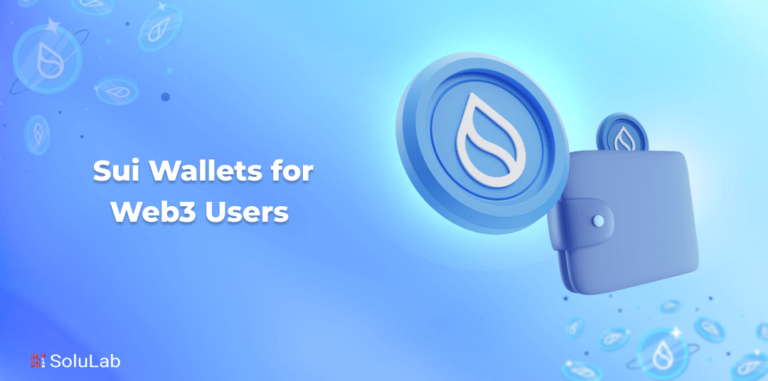What does that mean?
Blockchain technology, which has been in use for many years, has significantly changed the face of the world. Experts predict that blockchain-based solutions will have a major impact on a variety of sectors across the economy, financial institutions, and businesses, including real estate.
Real estate is regarded as one of the safest kinds of investments, with the highest returns. If you ask anybody what the greatest kind of investment and capital protection is, they will most likely recommend purchasing an apartment or commercial property. Unfortunately, many individuals may find this impossible to do without large sums of money.
However, blockchains—and the tokenization of real estate—make this feasible.
This will alter numerous market norms governing property rights, real estate investing, and capital raising. Read the article to find out how!
What is the role of tokenization in real estate?
Because tokenization is extremely adaptable, the token may represent real estate ownership in a variety of ways. The total amount of real estate that may be tokenized can vary, much like in conventional real estate investment. However, tokenization allows for minimal third-party influence over investors. Because actual assets would back the tokens, the value of the tokens would vary depending on the asset’s performance, akin to conventional real estate investment but with the ease of transfer provided by blockchain technology.
Possibilities with Tokenization of Real Estate
There are many other benefits of real estate tokenization that make it a much more appealing proposition than any prior type of investing. Among them are the following:
1. Increases liquidity
Real estate has always been a kind of low-liquidity investment or illiquid asset. Because of the participation of many parties and the time-consuming paperwork, considerable money is required, and there are more private participants than public corporations.
However, via tokenization, investors have simple access to assets, which are fractionalized, increasing the liquidity of tokens. As a result, real estate may become much more than just purchasing houses, and it can emerge as one of the leading revenue-generating sectors.
2. Increased Market Access
Real estate investing is often seen as a game for the wealthy. Benefits of real estate tokenization, on the other hand, alters this mentality and broadens the investment pool. Anyone with enough money and an internet connection may sell, acquire, or hold real estate assets from anywhere in the globe. You don’t even have to sell the token as a complete unit since the tokens (or assets) are fractionalized.
3. Transactions with Transparency and Low Costs
Every piece of data, from contract terms and transaction information to your preferences and interest due dates, is encoded into a secure, digital token. As a result, both the investor and the seller are completely transparent. Furthermore, with fewer middlemen and less administrative labour, the whole process of purchasing and selling homes becomes less costly.
4. Unchangeable Proof of Ownership
Extreme legal fights over ownership and rights have occurred often in the real estate business. These may be not only financially exhausting, but they can also have an effect on the brand’s value. Tokenization removes the source of any doubt. The information recorded in blockchain ledgers cannot be altered. As a result, once ownership or partial ownership is stated, previous or present transactions may be readily evaluated.
5. Property Administration
Delayed monthly rent payments or renewing contracts may be difficult for both renters and landlords. This procedure may be sped up by using blockchain-based smart contracts or tokens. It allows you to register documents in a database, collect timely rent from renters, syndicate loans, and speed up the due diligence process.
Challenges faced in the Tokenization of Real Estate
In theory, the idea of tokenization has the potential to be really revolutionary in the real estate industry. However, it must pass many key tests before it can function at an industry-grade level. One of the most significant difficulties is raising knowledge about blockchain and security tokens. To be fully maximised, the idea must operate on a much bigger scale. Because the industry is on such a small scale, this will take a long time. Furthermore, there are worries regarding the technology’s scalability.
Another major issue is the absence of regulation for cryptocurrencies and tokens, at least for the time being. Most nations would agree that tokens are nothing more than codes with no value under existing laws. As a result, users would have no legal basis to link them with specific items of property. This is a problem that must be addressed as quickly as possible.
Finally, tokenization would have to result in some kind of centralization. This may seem paradoxical, given that the entire point of blockchain technology was to eliminate the need for a third party. However, although that idea may have worked well for cryptocurrencies, it is far from the situation in the actual world.
Since everything is said and done, one cannot deny that tokenization has the creative potential to transform the real estate industry.
Why Is Real Estate Tokenization an Ideal Opportunity for Blockchain to Show Its Potential?
Is there still a lot of unresolved issues with property tokenization? Sure. But does it offer enough promise to justify the effort of resolving these issues?
Consider what we stand to gain: early access to money, wider investor groups, more liquid possibilities, greater market transparency, better control over owned assets, dependable ownership monitoring, direct asset trading, real-time investment procedures, and so on. Improvements that would have an immediate beneficial effect were welcomed.
Another reason to be optimistic is that tokenization would not require a complete rebuild that would fundamentally alter how the present system operates. Instead, blockchain adoption and tokenization would simplify the real estate industry while not totally upending it.
This makes tokenization much less intimidating than cryptocurrency and other, more disruptive types of blockchain deployment. We’re talking about a fantastic chance for blockchain technology to demonstrate its value without totally altering the way things are done, which will undoubtedly help to accelerate its adoption.
That is why we are certain that property tokenization will be among the first blockchain use cases to really make an effect on the world and show what this technology is capable of on a large scale. Its advantages will make all of the transitional difficulties worthwhile, while the real estate market as we know it and all of its present problems will soon seem like a distant past.
Claus Skaaning discusses blockchain technology and its effect on tokenization
You may have heard the word “blockchain” if you have been following banking, investment, or cryptocurrencies during the past 10 years. Blockchain is the technology that powers many of these financial networks, including Bitcoin. In layman’s terms, blockchain is a database system that saves data. Just as Excel is a tool that aids in financial calculations and Power Point is a technology that aids in the creation of presentations, blockchain is a technology that allows for the creation and storage of correct records. It saves data in blocks, which are subsequently linked together. As new data is received, it is put into a new block and then chained onto the preceding block, resulting in the data being chained together in chronological sequence.
Blockchain was created as a shared, irreversible ledger that enables the recording of transactions, ownership, pricing, and asset monitoring in a corporate network. An asset may be either physical (a home, a vehicle, cash, gold, or land) or intangible (money, gold, or land) (intellectual property, patents, copyrights or branding). On a blockchain network, almost anything of value may be monitored and exchanged, lowering risk, eliminating fraud, and lowering costs for all parties involved.
Blockchain is the technology that underlies cryptocurrencies, but its applications are not restricted to them. A blockchain is a digital record of transactions that is replicated and distributed throughout the blockchain’s complete network of computer systems. Blockchain technology is intended to function without the need for a centralised authority or clearinghouse, and the records that are generated are irreversible and therefore cannot be copied or altered.
Due to its decentralisation and real-time transactions, blockchain inherently provides numerous efficiencies that existing structures cannot support.Blockchain allows for near-real-time settlement of recorded transactions involving the sale or purchase of digital assets, eliminating friction and lowering risks while also restricting the ability to charge back or cancel transactions. Because it is built on cryptographic evidence, blockchain also provides a fully transparent environment, enabling any two parties to trade directly with each other without the need for a trusted third party.
Real estate tokenization - Sohail Hassan
Because fewer than 1% of all real estate assets are traded on a national market, real estate is the largest single asset class ($228 trillion in total assets) where tokenization may offer value. One of the most significant advantages of tokenization is the potential to decrease investment ticket sizes (say, from $50,000 to $10) as a result of technical automation of the issuance and post-issuance procedures. This smaller ticket size expands the pool of investors and, as a result, the availability of money and liquidity to investors. In reality, just 7% of all commercial real estate is accessible to investors, despite the fact that over 80% of people want to invest in real estate, as shown by the rush of money pouring into crowdfunding platforms.
As a result of blockchain technology, real estate syndicators should see that good projects can raise capital more easily, quickly, and at a lower cost. Investors can enjoy increased liquidity on their investments, implying that good projects can receive a liquidity premium, and investors worldwide can gain access to previously inaccessible types of investments.
The real estate market will benefit from “standard” blockchain features, and to expedite transactions, a set of rules – known as a “smart contract” – is recorded on the blockchain and implemented automatically, automating and lowering operational, investment, and administrative expenses. In a nutshell, it is a kind of artificial intelligence that monitors compliance with technical and financial covenants, regulatory limitations, trading restrictions, and so on.
Conclusion
Tokenization and digital securities represent the next frontier of technology, providing us with a once-in-a-lifetime chance to convert real estate investment from an outdated, elite-only activity to a liquid, digital asset class available to everyone with an internet connection.




